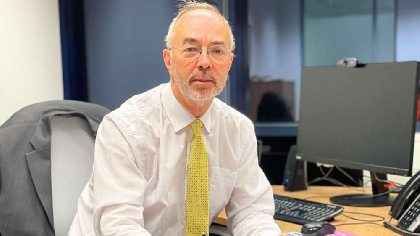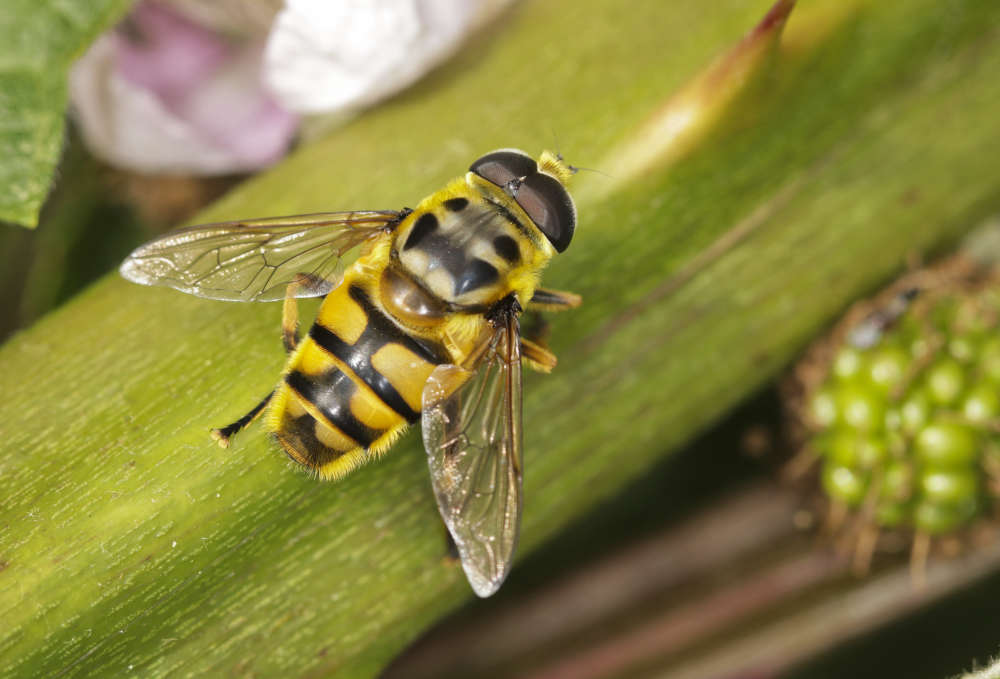
The BBC’s Chris Packham has accused the leader of Buckinghamshire Council Martin Tett of lying about the use of ‘toxic’ weed killer.
The Springwatch presenter said councillor Tett’s claim that glyphosate is ‘not harmful to people or animals and can be used safely close to water courses’ was incorrect.
Writing on X (formerly Twitter), Packham said: “Hello Buckinghamshire Council. What is this toxic excrement you have been excreting? It’s a damned lie. Please correct it.”
The naturalist and Just Stop Oil supporter was responding to a post by Frances Cutler in which she highlighted the claims Cllr Tett made about glyphosate – the world’s most widely used weed killer – in his regular newsletter last week.
In the newsletter, the Conservative council leader gave residents an update on weed spraying after ‘high weed growth’ in towns and villages across Buckinghamshire.
He confirmed that the council would carry out two full cycles of weed spraying across the county over the coming months after it re-instated a second cycle of weed-spraying in May.
Cllr Tett said the council would spray weeds on all public pavements with the chemical glyphosate and in some places would be ‘siding out’ weeds – manually removing them in parts of the pavement where they have grown through.
Bucks Council is not the only local authority to use glyphosate, which is licensed by the government and also used in farming.
Although the herbicide is legal to use in this country, some weed killers containing glyphosate are banned in countries like France, while others such as Austria have outlawed the chemical completely.
In 2015, the International Agency for Research on Cancer classified glyphosate as ‘probably carcinogenic to humans’, however this is disputed by the US Environmental Protection Agency.
More recent research by the University of California Berkeley School of Public Health in 2023 showed that childhood exposure to the weed killer was linked to several health issues in early adulthood.
These included liver inflammation and metabolic disorder, which can cause liver cancer, diabetes, and cardiovascular disease later in life.
Last week, Packham also called on Dorset Council to stop using glyphosate, before councillors of the authority voted to stop using it ‘where possible’.
Following the naturalist’s criticism of Bucks Council for using the weed killer, Cllr Tett defended its use.
He told the Local democracy Reporting Service: “We are using glyphosate weed killer in response to the many complaints we have had from residents about the rapid weed growth this year due to the combination of rain and sunshine.
“We are confident that glyphosate, when used correctly and in accordance with the guidance, does not pose a direct risk to the health of people or animals, acknowledging that some people have legitimate concerns about the use of this weed killer and its impact on health and the environment.
“As with any chemicals designed to kill plants, it will carry some level of toxicity. We apply glyphosate sparingly to minimise the impact on the environment and it remains licensed for use by the UK government.”
The council refused to comment directly on whether or not it thought glyphosate was carcinogenic or harmful to water courses.
A spokesperson said that all council workers and contractors wear ‘the protective clothing and equipment required for the role or task they are undertaking’, including those carrying out weedkilling duties.



 Amersham resident donates trainers to installation in dad's memory
Amersham resident donates trainers to installation in dad's memory
 Aylesbury Community Big Dig
Aylesbury Community Big Dig
 The Clare Foundation invites Buckinghamshire charities to apply for Angels' Den 2025
The Clare Foundation invites Buckinghamshire charities to apply for Angels' Den 2025
 Local Resident is Awarded an Honorary Doctorate
Local Resident is Awarded an Honorary Doctorate
 Trust A&E moves into the Top 20 performers in the country
Trust A&E moves into the Top 20 performers in the country
 Mursley Community Launches Inclusive Play and Exercise Area
Mursley Community Launches Inclusive Play and Exercise Area
 Youth Concern named Waddesdon and Rothschild Foundation’s 2025 Charity of the Year
Youth Concern named Waddesdon and Rothschild Foundation’s 2025 Charity of the Year
 Wild about Gardens campaign invites us all to become hoverfly heroes
Wild about Gardens campaign invites us all to become hoverfly heroes












